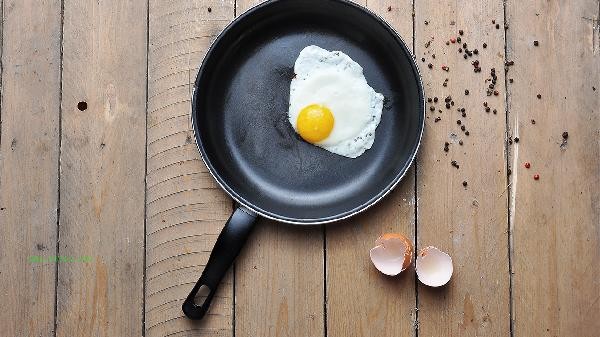During the weight loss period, you can eat boiled eggs in moderation for dinner. Eggs are rich in high-quality protein and essential nutrients, which can enhance satiety and promote metabolism, but attention should be paid to pairing with vegetables to control total calories.

1. Protein advantage:
Boiled eggs contain 13 grams of protein per 100 grams, with a digestion and absorption rate of over 90%. Protein molecules have complex structures and slow gastric emptying rates, which can prolong satiety time by 3-4 hours. The slow-release properties of casein can reduce nighttime hunger and avoid adding meals before bedtime. Suggest pairing 200 grams of blanched broccoli to supplement dietary fiber and control single meal calories within 200 calories.
2. High nutrient density:
Egg yolks contain lecithin and choline, which help regulate fat metabolism. Vitamin B2 is involved in the process of energy conversion, and each egg can meet 15% of an adult's daily requirement. Selenium, as a component of glutathione peroxidase, can alleviate oxidative stress after exercise. But the cholesterol content is about 200 milligrams, and people with high blood lipids should not consume more than 4 whole eggs per week.
3. Cooking method key:

Boiling water reduces oil intake by about 50% compared to frying eggs. The cooking time should be controlled at 8-10 minutes, which can kill Salmonella and avoid excessive protein denaturation. After cooling, peeling the shell can retain more than 97% of nutrients, avoiding the loss of water-soluble components such as vitamin B1. It is not recommended to pair with high calorie condiments such as salad dressing.
4. Suggested eating time:
Dinner should be consumed 3 hours before bedtime, and protein digestion takes about 2.5 hours. Eating too early may induce hunger, while eating too late can affect sleep quality. Paired with 30g of mixed grain bread, it can stabilize nighttime blood sugar and avoid low blood sugar in the morning. People with excessive stomach acid should avoid eating citrus fruits together.
5. Attention for special populations:
Patients with renal insufficiency should limit their total protein intake and follow medical advice for daily egg intake. People with egg allergies can choose plant-based protein alternatives such as tofu. Pregnant women are advised to choose fully cooked eggs to avoid the risk of Listeria monocytogenes that may exist in soft boiled eggs. The fitness population can increase their protein intake to 2, but they need to reduce their intake of other meats accordingly.

Long term use of egg dinner should pay attention to balanced nutrition. It is recommended to switch protein sources such as chicken breast and deep-sea fish 3-4 times a week. Combining with 30 minutes of aerobic exercise daily for better results, such as brisk walking, swimming, and other low-intensity exercises. When cooking, natural spices such as black pepper and turmeric powder can be added to increase metabolic rate. Record daily diet and weight changes, and adjust food types and portions in a timely manner. If you experience persistent constipation or skin allergies, you should suspend consumption and consult a nutritionist.




Comments (0)
Leave a Comment
No comments yet
Be the first to share your thoughts!